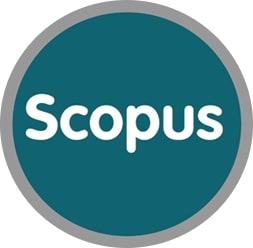Rethinking Law and Justice: The Core Principles of Critical Legal Studies against Legal Formalism
DOI:
https://doi.org/10.5281/zenodo.17332128Keywords:
Critical; Formalism; Justice; Legal; Studies.Abstract
The core idea of Critical Legal Studies is that law is not a neutral and objective system but is influenced by social, political, and economic factors. This perspective challenges the Legal Formalism doctrine, which holds that the law should be applied consistently in accordance with existing rules, without regard to social or political context. This article will explore the key ideas of Critical Legal Studies and its critique of the Legal Formalism school of thought. The article is written based on research using a normative legal research method with a philosophical approach. The research findings highlight that Critical Legal Studies' critique of Legal Formalism begins with the reality that its implementation leads to law enforcement that neglects the values of justice, equality, and equity in everyday life. Critical Legal Studies seeks to establish a legal system that is more just and responsive to the public's need for justice in their daily reality. This study contributes to legal theory by reaffirming that law cannot be separated from its socio-political and economic contexts. Through a normative legal research method with a philosophical approach, this article reconstructs the understanding of justice beyond the rigidity of Legal Formalism. It highlights that the Critical Legal Studies movement provides a transformative framework for developing a more contextual, equitable, and human-centered legal system, offering a significant alternative paradigm within contemporary legal philosophy.
Downloads
References
Ali Safa’at, Muchamad, and Milda Istiqomah. “CRITICAL LEGAL STUDIES (CLS): AN ALTERNATIVE FOR CRITICAL LEGAL THINKING IN INDONESIA.” PETITA: JURNAL KAJIAN ILMU HUKUM DAN SYARIAH 7, no. 1 (2022). https://doi.org/10.22373/petita.v7i1.122.
Ash-shidiqqi, Ellectrananda Anugerah. “Rule of Law Dalam Perspektif Critical Legal Studies.” Amnesti Jurnal Hukum 3, no. 1 (2021). https://doi.org/10.37729/amnesti.v3i1.895.
Bagenda, Christina. “Filsafat Realisme Hukum Dalam Perspektif Ontologi, Aksiologi, Dan Epistemologi.” Jurnal Ius Constituendum 7, no. 1 (2022). https://doi.org/10.26623/jic.v7i1.4777.
Bashier, Risydam. “KRITIK TERHADAP FORMALISME HUKUM.” Jurnal Pelita Nusa 3, no. 1 (2023). https://doi.org/10.61612/jpn.v3i1.34.
Bohm, Robert M., and David Kairys. “The Politics of Law: A Progressive Critique.” The Journal of Criminal Law and Criminology (1973-) 76, no. 1 (1985). https://doi.org/10.2307/1143371.
Butler, Chris. “Critical Legal Studies and the Politics of Space.” Social and Legal Studies 18, no. 3 (2009). https://doi.org/10.1177/0964663909339084.
Collins, Hugh. “Roberto Unger and the Critical Legal Studies Movement.” Journal of Law and Society 14, no. 4 (1987). https://doi.org/10.2307/1410255.
Emma Dysmala Somantri. “Kritik Terhadap Paradigma Positivisme Hukum.” Wawasan Hukum 28, no. 01 (2011).
Gabe1, Peter. “The Phenomenology of Rights-Consciousness and the Pact of the Withdrawn Selves.” In Rights, 2017.
Galloway, Donald. “Nothing If Not Critical - A Review of A Critique of Adjudication {fin de Siecle} by Duncan Kennedy.” Alberta Law Review 36, no. 1 (1997). https://doi.org/10.29173/alr1024.
Gojali, Dudang. “FILSAFAT HUKUM: Aktualisasi Critical Legal Studies Di Indonesia.” Al-Manhaj: Jurnal Hukum Dan Pranata Sosial Islam 4, no. 2 (2022).
Hayat, Rizky Saeful. “Konsep Dasar Critical Legal Studies: Kritik Atas Formalisme Hukum.” Hermeneutika: Jurnal Ilmu Hukum 5, no. 1 (2021).
Henry Arianto. “Hukum Responsif Dan Penegakan Hukum Di Indonesia.” Lex Jurnalica 7, no. April (2010).
Huijbers, Theo. Filsafat Hukum Dalam Lintasan Sejarah. Kanisius, 1982.
Islamiyati, Islamiyati. “Kritik Filsafat Hukum Positivisme Sebagai Upaya Mewujudkan Hukum Yang Berkeadilan.” Law, Development and Justice Review 1, no. 1 (2018). https://doi.org/10.14710/ldjr.v1i1.3574.
Jonaedi Efendi dan Johnny Ibrahim. “Metode Penelitian Hukum: Normatif Dan Empiris / Jonaedi Efendi, Johnny Ibrahim.” Kencana 2, no. Hukum (2018).
Marzuki, Peter Mahmud. “Penelitian Hukum, Cetakan Ke-11.” Jurnal Pembangunan Hukum Indonesia 4, no. 2 (2022).
Nadir. “Filsafat Hukum Dan Dekonstruksi Critical Legal Studies: Sebuah Paradigma Pembaruan Hukum Dalam Menggugat Eksistensi Dominasi Asumsi Kemapanan Hukum.” Jurnal YUSTITIA 20, no. 2 (2019).
Nalle, Victor Imanuel. “KRITIK POSITIVISME DALAM HUKUM MODERN.” Sapientia Et Virtus 2, no. 1 (2015). https://doi.org/10.37477/sev.v2i1.55.
Nurdin, Boy, and Khayitjon Turdiev. “Paradigm of Justice in Law Enforcement in the Philosophical Dimensions of Legal Positivism and Legal Realism.” Lex Publica 8, no. 2 (2021). https://doi.org/10.58829/lp.8.2.2021.65-74.
Nurjaman, Muhamad Izazi, Anas Bayan Mubarok, Ayi Yunus Rusyana, and Hasan Bisri. “Teori Legal Realism: Konsep Dan Eksistensinya Dalam Hukum Ekonomi Syariah Di Indonesia.” Al Mashalih - Journal of Islamic Law 4, no. 2 (2023). https://doi.org/10.59270/mashalih.v4i2.210.
Poniman, Poniman. “PENYELESAIAN KONFLIK PEWARISAN AKIBAT HIBAH BERDASARKAN HUKUM PROGRESIF.” Jurnal Yudisial 10, no. 1 (2017). https://doi.org/10.29123/jy.v10i1.40.
Rahmatullah, Indra. “Filsafat Hukum Aliran Studi Hukum Kritis (Critical Legal Studies); Konsep Dan Aktualisasinya Dalam Hukum Indonesia.” ADALAH 5, no. 3 (2021). https://doi.org/10.15408/adalah.v5i3.21393.
Schlegel, John Henry, and Duncan Kennedy. “A Critique of Adjudication: Fin de Siecle.” Law and History Review 17, no. 3 (1999).
Sulaiman. “HUKUM RESPONSIF: HUKUM SEBAGAI INSTITUSI SOSIAL MELAYANI KEBUTUHAN SOSIAL DALAM MASA TRANSISI (Responsive Law: Law as a Social Institutions to Service of Social Need in Transition).” Jurnal Hukum Samudra Keadilan 9, no. 2 (2014).
Unger, Roberto Mangabeira. “The Critical Legal Studies Movement.” Harvard Law Review 96, no. 3 (1983). https://doi.org/10.2307/1341032.
Downloads
Published
How to Cite
Issue
Section
License
Copyright (c) 2025 Vincentius Setyawan, Bariah Safrut

This work is licensed under a Creative Commons Attribution-ShareAlike 4.0 International License.














